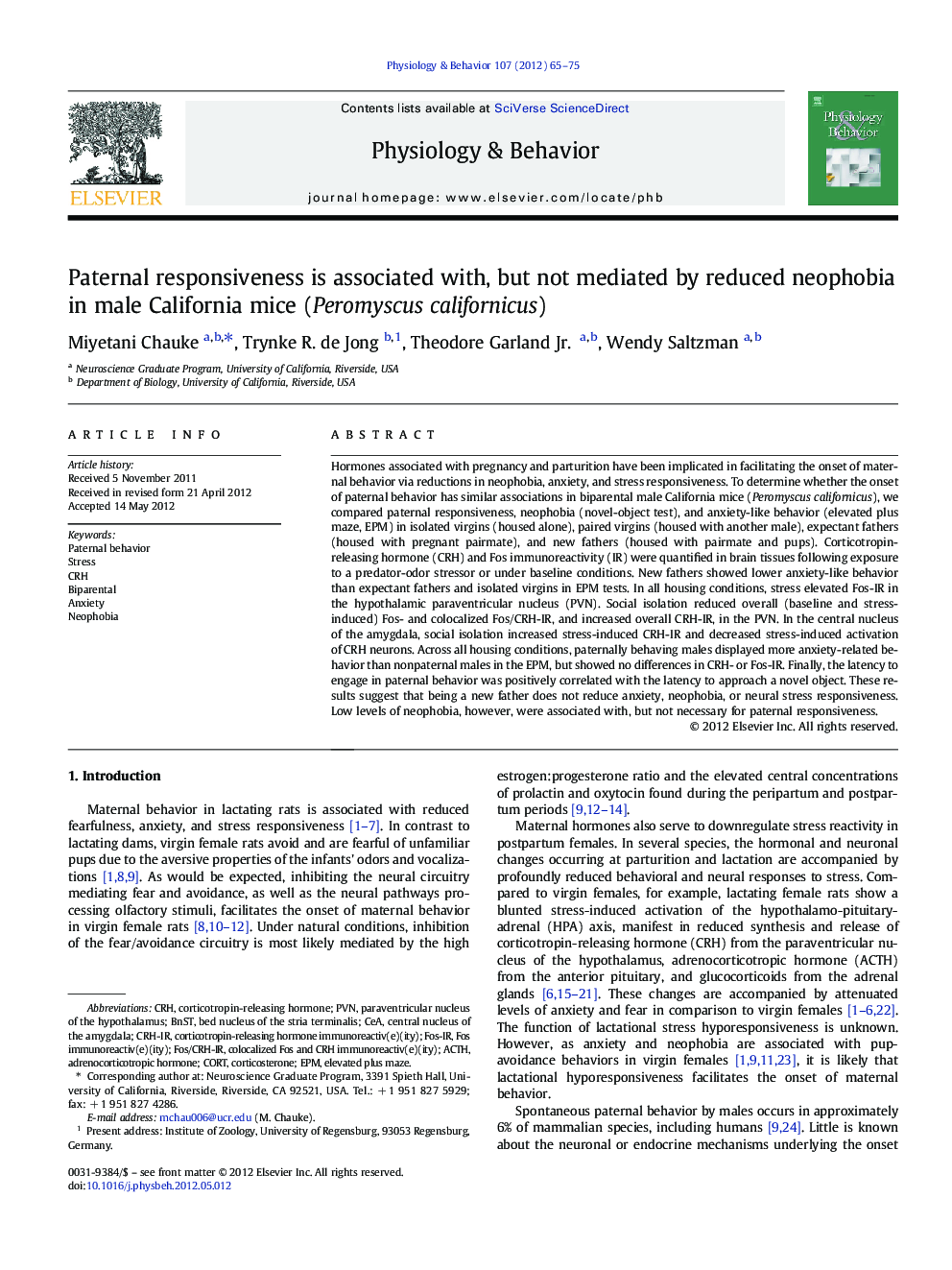| Article ID | Journal | Published Year | Pages | File Type |
|---|---|---|---|---|
| 2844447 | Physiology & Behavior | 2012 | 11 Pages |
Hormones associated with pregnancy and parturition have been implicated in facilitating the onset of maternal behavior via reductions in neophobia, anxiety, and stress responsiveness. To determine whether the onset of paternal behavior has similar associations in biparental male California mice (Peromyscus californicus), we compared paternal responsiveness, neophobia (novel-object test), and anxiety-like behavior (elevated plus maze, EPM) in isolated virgins (housed alone), paired virgins (housed with another male), expectant fathers (housed with pregnant pairmate), and new fathers (housed with pairmate and pups). Corticotropin-releasing hormone (CRH) and Fos immunoreactivity (IR) were quantified in brain tissues following exposure to a predator-odor stressor or under baseline conditions. New fathers showed lower anxiety-like behavior than expectant fathers and isolated virgins in EPM tests. In all housing conditions, stress elevated Fos-IR in the hypothalamic paraventricular nucleus (PVN). Social isolation reduced overall (baseline and stress-induced) Fos- and colocalized Fos/CRH-IR, and increased overall CRH-IR, in the PVN. In the central nucleus of the amygdala, social isolation increased stress-induced CRH-IR and decreased stress-induced activation of CRH neurons. Across all housing conditions, paternally behaving males displayed more anxiety-related behavior than nonpaternal males in the EPM, but showed no differences in CRH- or Fos-IR. Finally, the latency to engage in paternal behavior was positively correlated with the latency to approach a novel object. These results suggest that being a new father does not reduce anxiety, neophobia, or neural stress responsiveness. Low levels of neophobia, however, were associated with, but not necessary for paternal responsiveness.
► Associations were found between latency to approach the novel object. ► New fathers were less anxious than expectant fathers and isolated virgins. ► Paternal males were more anxious than nonpaternal males. ► Stress elevated Fos in the hypothalamic paraventricular nucleus in all animals. ► Social isolation, and not fatherhood, modulated neuroendocrine stress responsiveness.
